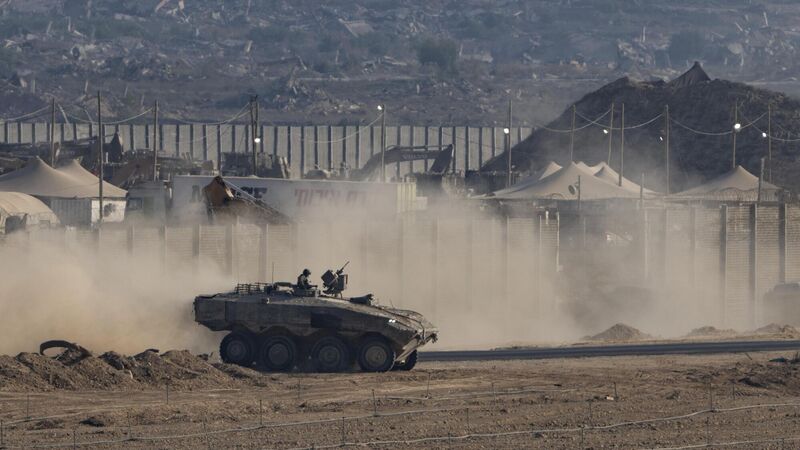75% of Gazan detainees held without trial are sick, disabled, or elderly citizens, Israeli data shows

An Israeli soldier moves on top of an armored vehicle near the Israeli-Gaza border, as seen from southern Israel. Israeli forces have advanced through the outer suburbs and are now a few miles from Gaza city centre.
Only a quarter of detainees from Gaza are identified as fighters by Israel’s military intelligence with many sick, disabled, and elderly among the civilians making up the rest of those held without charge or trial.
A number of children are also among those being held for long periods as well as medical workers, teachers, civil servants, media workers, and writers.














